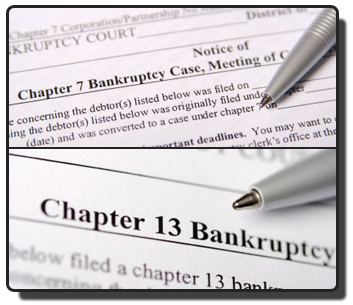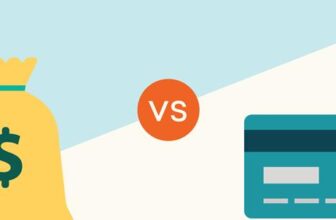
Bankruptcy is a legal process that provides individuals and businesses with a fresh start when they are unable to meet their financial obligations. Two common forms of bankruptcy are Chapter 7 and Chapter 13. While both options offer debt relief, they have significant differences. This article will guide you through the nuances of Chapter 7 and Chapter 13 bankruptcy, helping you make an informed decision based on your unique financial circumstances.
Understanding Bankruptcy:
Bankruptcy is a legal process designed to provide individuals and businesses with relief from overwhelming debt. It allows them to either eliminate their debts entirely or develop a repayment plan based on their financial capacity. Bankruptcy is governed by federal law and is intended to give debtors a fresh start while ensuring fair treatment for creditors.
Key Differences Between Chapter 7 and Chapter 13:
Chapter 7 and Chapter 13 are the most common types of bankruptcy filings for individuals. Understanding the differences between them is crucial when deciding which option suits your needs. Here’s a breakdown of the key distinctions:
Eligibility for Chapter 7 Bankruptcy:
Chapter 7 bankruptcy, often referred to as “liquidation bankruptcy,” is available to individuals or businesses who pass the means test. This test assesses the debtor’s income, expenses, and financial situation to determine eligibility. Chapter 7 bankruptcy discharges most unsecured debts, such as credit card debt and medical bills.
Eligibility for Chapter 13 Bankruptcy:
Chapter 13 bankruptcy, also known as “reorganization bankruptcy,” is an option for individuals with a regular income who can afford to repay a portion of their debts over time. Unlike Chapter 7, Chapter 13 involves developing a repayment plan to satisfy creditors. This plan typically lasts three to five years.
The Automatic Stay:
When filing for bankruptcy, both Chapter 7 and Chapter 13 trigger an automatic stay. This provision halts most collection actions, including lawsuits, wage garnishments, and foreclosure proceedings. The automatic stay provides temporary relief and gives debtors a chance to reorganize their finances.
Liquidation vs. Repayment Plans:
One fundamental distinction between Chapter 7 and Chapter 13 bankruptcy is how debts are treated. Chapter 7 involves the liquidation of non-exempt assets, with the proceeds used to pay off creditors. In contrast, Chapter 13 establishes a repayment plan that allows debtors to retain their assets while repaying a portion of their debts.
Impact on Assets:
In Chapter 7 bankruptcy, non-exempt assets may be sold to satisfy creditors. However, certain assets are protected by exemption laws, allowing debtors to keep essential possessions such as a primary residence, vehicle, and personal belongings. Chapter 13 bankruptcy allows debtors to keep all their assets, provided they adhere to the repayment plan.
Exempt and Non-Exempt Property:
Both Chapter 7 and Chapter 13 bankruptcy distinguish between exempt and non-exempt property. Exempt property is protected and cannot be seized by creditors, while non-exempt property may be liquidated to satisfy debts. The specific exemptions available vary depending on federal and state laws.
The Means Test:
To qualify for Chapter 7 bankruptcy, debtors must pass the means test. This evaluation compares their income to the median income in their state. If their income falls below the median, they automatically qualify for Chapter 7. However, if their income exceeds the median, further calculations are required to determine eligibility.
Duration of the Bankruptcy Process:
Chapter 7 bankruptcy is generally resolved within a few months, providing debtors with a relatively quick discharge of debts. On the other hand, Chapter 13 bankruptcy involves a longer process, typically lasting three to five years due to the repayment plan.
Credit Consequences:
Both Chapter 7 and Chapter 13 bankruptcy have significant impacts on an individual’s credit. A Chapter 7 bankruptcy remains on the credit report for ten years, while Chapter 13 remains for seven years. However, with responsible financial management, it is possible to rebuild credit over time.
Filing Bankruptcy Without an Attorney:
While it is possible to file bankruptcy without an attorney, it is highly recommended to seek professional legal advice. Bankruptcy law is complex, and an experienced attorney can guide you through the process, ensuring you make informed decisions and comply with all requirements.
Pros and Cons of Chapter 7 Bankruptcy:
Chapter 7 bankruptcy offers several advantages, including the discharge of unsecured debts and a relatively quick resolution. However, it also has downsides, such as the potential liquidation of non-exempt assets and the impact on credit.
Pros and Cons of Chapter 13 Bankruptcy:
Chapter 13 bankruptcy has its benefits, including the ability to keep assets and develop a repayment plan based on income. However, the process is longer and requires a commitment to regular payments over an extended period. It is important to weigh these factors carefully when considering Chapter 13.
FAQs:
What is the main difference between Chapter 7 and Chapter 13 bankruptcy?
Chapter 7 bankruptcy involves the liquidation of assets to pay off debts, while Chapter 13 bankruptcy establishes a repayment plan over three to five years.
Can I file for Chapter 7 bankruptcy if I have a regular income?
Chapter 7 bankruptcy has income eligibility requirements. If your income is below the state median, you may qualify. Otherwise, you may need to explore Chapter 13 bankruptcy.
What happens to my assets in Chapter 7 bankruptcy?
Non-exempt assets may be liquidated to satisfy creditors. However, exemption laws protect certain assets, such as a primary residence and personal belongings.
Will filing for bankruptcy ruin my credit forever?
Bankruptcy has a significant impact on your credit, but it is not permanent. With responsible financial management, you can begin rebuilding your credit over time.
Do I need an attorney to file for bankruptcy?
While it is possible to file for bankruptcy without an attorney, it is highly recommended to seek legal advice. An attorney can ensure you navigate the process correctly and maximize the benefits available to you.
Which type of bankruptcy is best for me?
The best type of bankruptcy depends on your unique financial circumstances. It is advisable to consult with an experienced bankruptcy attorney who can evaluate your situation and provide personalized guidance.
Conclusion:
Understanding the difference between Chapter 7 and Chapter 13 bankruptcy is essential when seeking debt relief. While Chapter 7 involves the liquidation of assets and the discharge of debts, Chapter 13 entails developing a repayment plan over several years. Each option has its advantages and disadvantages, and it is crucial to assess your financial situation carefully. Consider consulting with a bankruptcy attorney to determine the best course of action for your specific circumstances.




